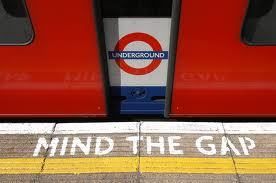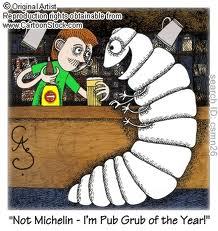She is back. She retornou às aulas numa quinta-feira e me entregou um souvenir quer tinha comprado para mim.
- I bought that to you, professor. É " to" ou " for" you, teacher. Eu nunca sei.
- Well, nessa caso, você pode usar tanto " for" quanto " to". Afinal, você está me entregando o presente. Mas como você diria em inglês: eu fui a Londres por causa do You?
- I went to London because of You.
- Yes, ou " I went to London for You". Sendo " for" um substituto do " because of". Eu fiz algo por você...
- I did something FOR you.
- E estou entregando isso para você...
- And I am giving it TO you.
- Perfect!
- My God! This language is só difficult...
- However, é somente praticando que conseguimos falar bem. Tenho certeza que você praticou bastante em Londres.
- Praticar sim, falar bem não. Eu não gosto de falar como um índio. Se eu tenho que dizer algo, eu tento, mas sei que eu poderia fazer muito melhor. Falar inglês macarrônico é como falar portunhol, Professor.
- Falar inglês macarrônico é melhor que não falar at all, She. A maioria das pessoas não consegue sequer abrir a boca para pedir um copo d'água , nevertheless, ajudar outras pessoas a se comunicarem como você fez com o You.
- Sei não, teacher. Não quero falar errado.
- Sem erro, não tem acerto, She.
- O senhor acha bonito alguém falando portunhol?
- Eu acho bonito toda forma de comunicação, She. O que eu não gosto é de ver ou ouvir alguém ser ridicularizado por tentar se comunicar. Aqui no Brasil, existe uma idéia irreal de perfeição em relação a falar inglês. Qualquer pessoa que tente se expressar em público e comete erros é humilhado por um padrão de linguagem que não existe em lugar algum, somente aqui no Brasil. Você deve ter visto a quantidade de estrangeiros que moram em Londres. Como você acha que eles se comunicam?
- Eles devem ir para a escola...
- A maioria não tem dinheiro to do so. Eles precisam trabalhar, viver e continuar suas vidas. Não há o luxo de se estudar uma língua e falar como nativos. Não há tempo para esperar FOR uma perfeição que não existe.
- Eu compreendo, Professor. Porém, não me sinto bem falando errado, por isso eu acredito que preciso aprender mais antes de sair falando. É isso que eu sempre digo pro You. Ele falar um inglês tão ruim, Professor, que dói no ouvido. Eu tento corrigi-lo, mas You não me escuta e segue por aí, falando aquele inglês esquisito. O senhor já ouviu falar de " vergonha alheia"?
- Eu não vou fazer nenhum comentário sobre isso, afinal, a sua relação com o You não é da minha conta! mas perceba...You ainda é o meu aluno e eu acredito que a melhor coisa que You pode fazer pelo inglês dele é se arriscar. E eu encorajo todos os meus alunos a fazerem isso.
- O senhor não fica com receio de estar encorajando o erro?
- Eu ficaria com receio se eu não estivesse encorajando-os a errarem.
- I don't know if I agree with that, Professor, eu quero ser corrigida. Gostaria mesmo de te pedir que não me deixe errar. That's why I am here.
- Eu não estarei sempre com você quando você errar, She.
- E que o Senhor propõe? Que eu continue errando sem saber que estou fazendo isso?
- Não! Eu proponho que você aprenda a se corrigir para não depender de mim ou de qualquer outra pessoa quando você estiver falando.
- E como eu consigo fazer isso?
- Isso se chama " recasting", She! That's why you are here. I am not a correcting machine, I am your tutor and I will do my best to teach you how to learn the recasting technique, however, you have to promise me that you will do your part.
- Which is my part?
- Making mistakes, She. Only by making mistakes, you will be able to show me how you are structuring your English. I don't care about your " right english", it is only the mistakes that can show me how further you are going in order to explain your ideas. Deal?
- Dunno! But, I will do my best to understand what you are trying to teach me.
- See you next week, She!






